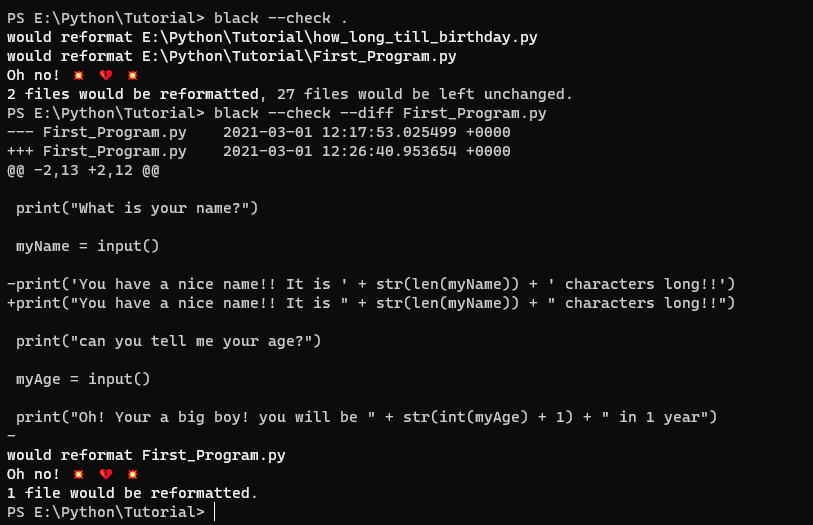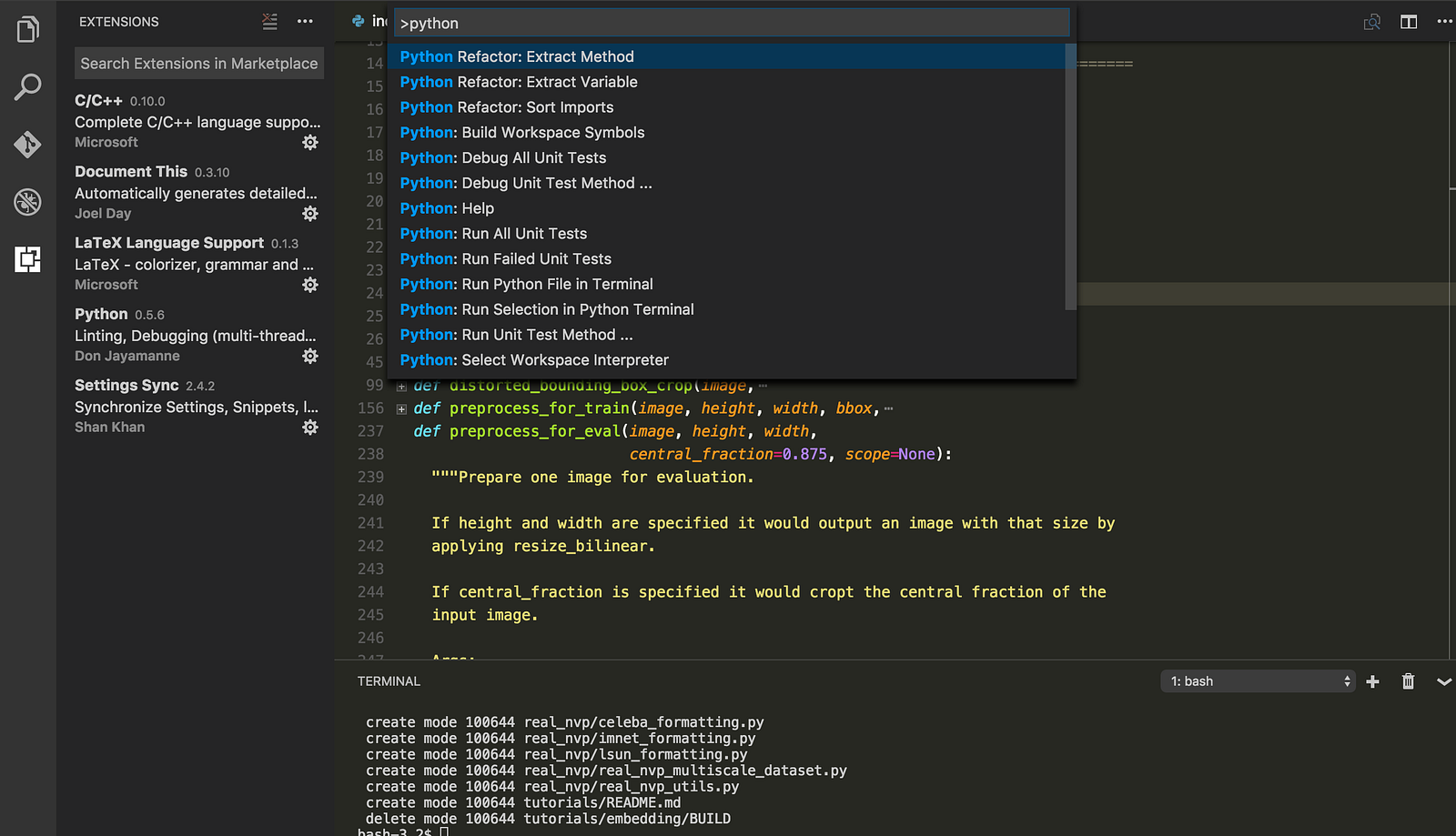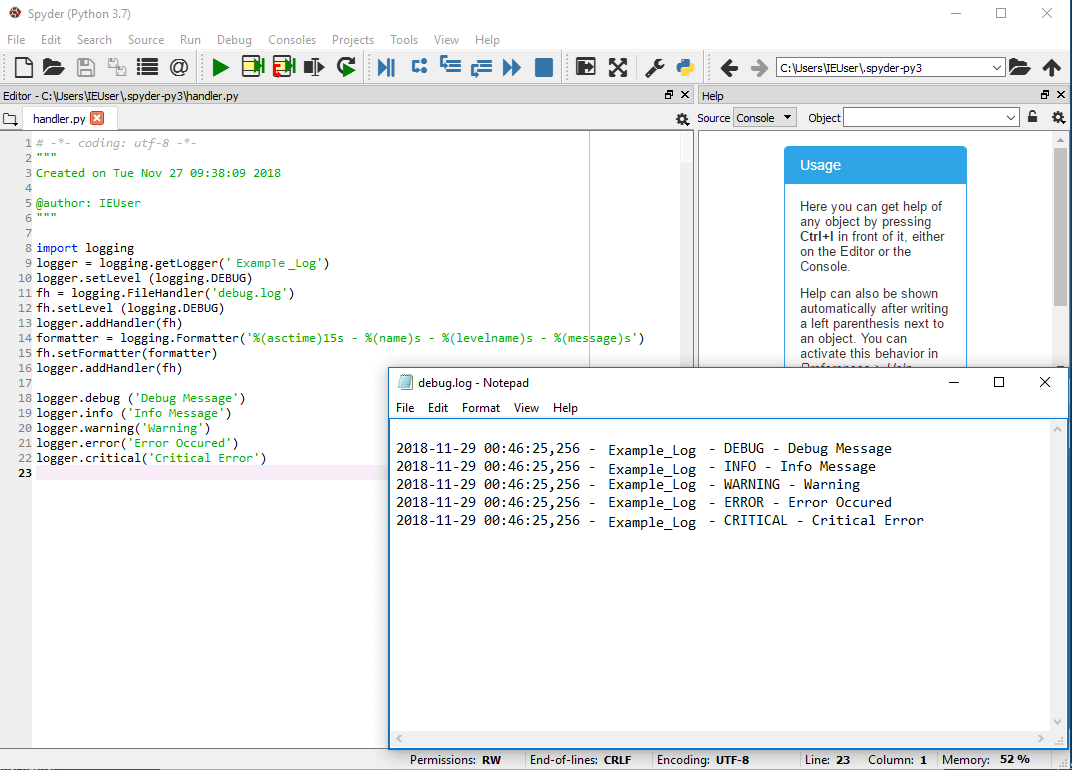

- #PYTHON CODE FORMATTER INSTALL#
- #PYTHON CODE FORMATTER UPDATE#
- #PYTHON CODE FORMATTER PATCH#
- #PYTHON CODE FORMATTER FULL#
- #PYTHON CODE FORMATTER FREE#
Phew! That was a lot of work, wasn't it? But guess what, we only looked at style guide violations for now.
#PYTHON CODE FORMATTER FREE#
Now that you can be assured that code pushed to the repo is free from style guide deviations, this frees up code reviewers to take a bigger picture look at the code and leave the minutiae to HAL.
#PYTHON CODE FORMATTER UPDATE#
How about we turn the automation up to 11 and update our GitHub workflow to automatically fix code style violations?Ĭommit_message : 'Opening the pod-bay doors' git_name : 'HAL-9000' git_email : ' '
#PYTHON CODE FORMATTER FULL#
We've not tapped into Black's full potential yet. Black is capable of reformatting files, but so far, we have only used it to detect issues and present diffs. That brings us to the one aspect we still haven't addressed yet. That'll come in pretty handy when you're fixing the violations. The logs will show both the failing files as well as the diffs for those files (because of the -diff argument). Our list_primes.py file will fail the test. Once you set up linting, all future commits and PRs will pass through Black.

By default, this action runs Black with the -check and -diff arguments. This workflow checks out the repository, sets up Python, installs Black and then lints the files. Steps : - uses : actions/ - uses : actions/setup - uses : psf/ On : jobs : lint : runs-on : ubuntu -latest
#PYTHON CODE FORMATTER INSTALL#
Let's install both Autohooks and the Black-integration plugin. It has a plugin system that enables integration with tools like Black. The 'pre-commit' hook is of particular interest to us because we'd like the lint check to take place before the commit is created, and prevent the commit from being created if it fails.Īutohooks is a Python package for managing these hooks via Python. Git hooks are programs that run on your codebase when you execute certain Git commands. Wouldn't it be awesome if Black ran automatically every time you were to commit your code? It's possible, with Git hooks.


Let's automate the boring parts of the code review. list_primes.py 00:00:00.000000 +0000 +++ list_primes.py 00:00:00.000000 +0000 -1,17 +1,19 # list_primes.pyĬode review can be split in two parts: the interesting part where you solve big picture issues and the mundane parts where you identify non-idiomatic snippets and code style violations. Running the following command creates two files, Pipfile and Pipfile.lock, in the root of the repo and installs Black as a dev dependency. So let's install Black, while also taking the opportunity to set up some first-class dependency management with a tool I personally love, Pipenv. What's neat is that it is pretty opinionated and can't be configured much, making it ideal for automation. It is capable of automatically reformatting your Python files, fixing all code style violations.
#PYTHON CODE FORMATTER PATCH#
These suggestions can improve performance, incorporate new language features, patch security oversights, or correct code style. Code reviews go a long way towards this goal.Ĭode review is the process where developers more experienced than yourself read through your code and suggest improvements that could make it better. Identifying the quality of code is an intuition that is honed over time, through practice and experience. Those are two MIT professors with pretty solid credentials. Programs are meant to be read by humans and only incidentally for computers to execute. All we have are some abstract guidelines such as readability: That's because there are no rules set in stone about what makes code good or bad. When we talk of good code, the word 'good' is vague by design. The former is a skill while the latter is an art form, and this difference distinguishes great programmers from the crowd. Writing code that works and writing good code are two very different things. Right off the bat, let's clarify an important distinction.


 0 kommentar(er)
0 kommentar(er)
